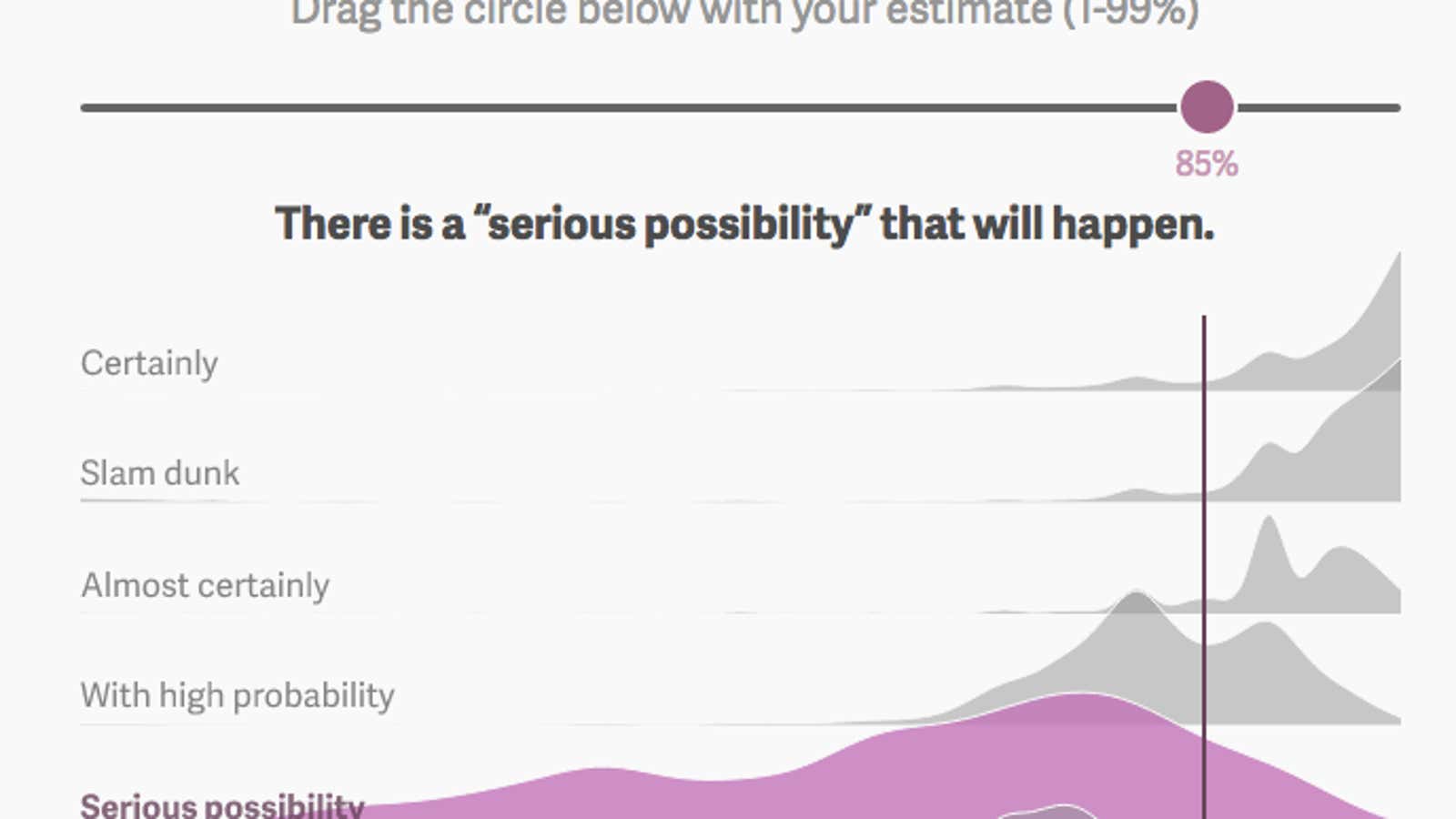Language is squishy and imprecise. Does “I think France will win the World Cup” mean you are near certain they will win, or does it mean you think they have just a slight edge? It could be either. Including words like “maybe,” “likely,” and “possibly,” can help, but are all perceived differently.
What about “I think France has a 92% chance of winning the World Cup”? It is more precise, but committing to a single number can be foolhardy if there’s no data to back it up. Which brings us to our tool to help you. It gives you the perfect word to use based on how likely you think something is to happen.
First, think of something you want to predict. Like, “France wins the World Cup” or “I become a billionaire in my lifetime.” If you had to put a number to it, what is your best guess as to how likely this is?
The tool matches your number with the term that most closely approximates it. The results are based on thousands of actual responses to an online survey created by Andrew Mauboussin, a data scientist at Twitter, and his father Michael, research director at BlueMountain Capital Management.
The survey asks people to assign percentages to squishy, probabilistic words like “possibly” and “likely,” offering more precise clarity on how they interpret each one. So far, close to 2,000 people have taken their survey.
